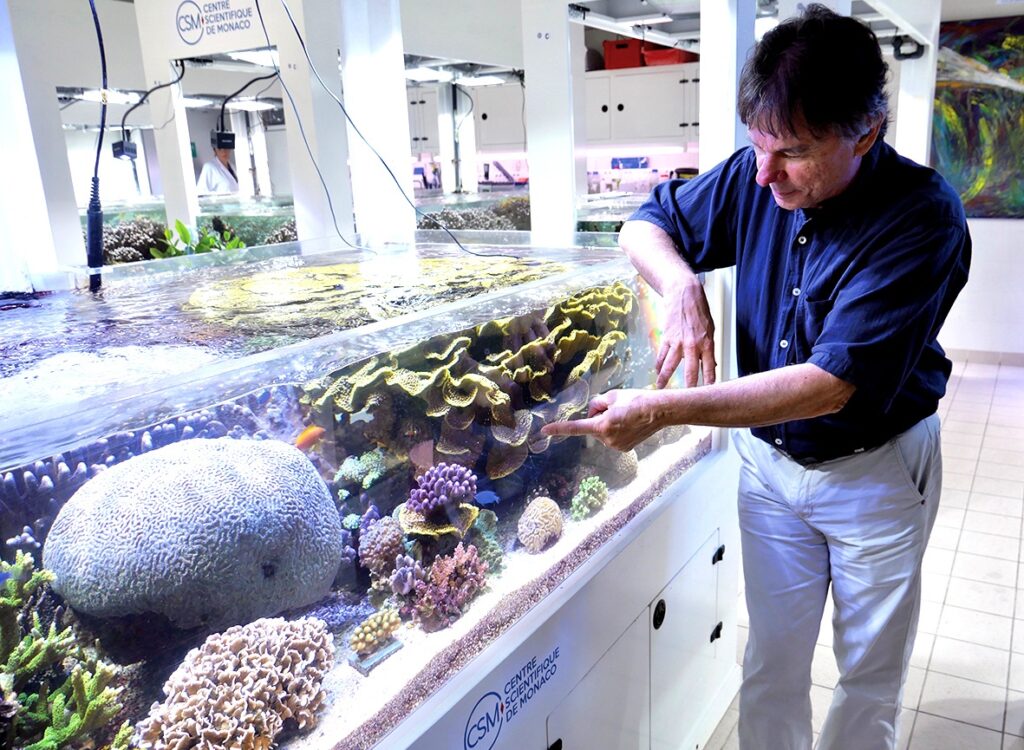Monaco Scientific Centre: “This exceptional health crisis will certainly highlight people’s interest in science”

The Monaco Scientific Centre (CSM), which was created in 1960 by Prince Rainier III, is the only research centre in the Principality. The CSM is one of Monaco’s most important institutions, active throughout the year, particularly during the current Covid-19 pandemic.
Scientific research has taken centre stage during the health crisis. Scientific Director of Monaco Scientific Centre, Denis Allemand spoke to Monaco Tribune about current events, the role of CSM, and the role of scientists in today’s current climate.
Do you think that the health and economic crisis will push people to take a greater interest in sustainable development and scientific issues?
This exceptional health crisis will certainly highlight people’s interest in science. These are the benefits of this catastrophe. During lockdown, there was a real appetite for scientific publications. People went en masse to scientific websites to read articles they would never have bothered to open a few weeks earlier. This shows that when there is a problem, everyone turns to researchers for explanations and answers.
Until now, research has not really been a priority in many countries
Have you felt there has been less of an interest in science recently?
When you see the news, science, the latest data and research don’t or rarely make the headlines unless it is about something shaking up what we already know. Behind the curtain, science is building on various significant advances to construct greater general understandings through ongoing research. Until now, research has not really been a priority in many countries.
In France, the only reliable test recommended for detecting Covid-19 is PCR. Can you tell us about the origins of this process?
The process is built on small results, and currently, there is a lot of talk in the press about PCR (an enzyme amplification technique that makes it possible to obtain a large number of identical copies of one DNA fragment), a method based on a discovery by a researcher in the 1960s, who found bacteria living in the lakes of Yellowstone Park in the United States. This research on the microbiological biodiversity of these warm, acidic lakes had no medical purpose. This researcher described a bacterium living at sixty degrees, and then other researchers studied it in more detail, isolating enzymes from this bacterium that can function at very high temperatures. So today, the fact that we can detect viruses and that PCR is used in laboratories and forensics worldwide, it’s because of a simple discovery by a microbiologist who was studying biodiversity. If it hadn’t been for that research and that accurate detection, we wouldn’t be where we are today. It is essential to look, but not to look for an application. It is research that will make the applications and not the other way around.
View this post on Instagram
Within the Monaco Scientific Centre, what are the main missions and research carried out?
Our main role is the development of research and knowledge in its various forms, mainly working with hospitals to improve treatment for certain pathologies. We also carry out applied research and develop patents. We have just filed a patent for Coraliotech, an organisation founded by a former CSM researcher. We also have an appraisal mission, CSM being able to finance research programmes. For example, the State has asked us to develop clinical research programmes so they can be funded here. Clinical research is already widely financed in France, but not here. Doctors in the Principality, therefore, propose projects to the CSM which are evaluated by a panel of experts. We also train doctoral students for the world of research, with nearly thirty currently working here at the CSM. And finally, the centre organises conferences for the general public. It publishes articles in the press, collaborating with the Friends of the CSM Foundation, which was launched by science enthusiasts to help the centre in its roles.
What are the main areas of expertise of the CSM?
The first, which has been carried out for thirty years, concerns the study of coral ecosystems in the Mediterranean, such as precious red coral, cold-water corals and tropical reefs. We have cultivated coral cultures under controlled conditions that are the oldest in the world for more than thirty years. The second area of expertise is polar biology, with the study of penguins, which are used as indicators of the health of our ecosystems. This field was created during the Sovereign Prince’s trip to Antarctica, which he wanted the CSM to be associated with. This scientific activity has since been developed. Finally, since the centre moved to the docks, we have set up a third department of medical biology, divided into four main themes. Research into paediatric cancer, in collaboration with Denis Maccario’s Flavien Association, research into muscular pathologies, in partnership with Monaco’s Association Against Muscular Dystrophy, as well as research into the role of probiotics and “pedological” research. The latter is interested in the relationship between human health and the environment and how climate change affects organisms worldwide.
View this post on Instagram













